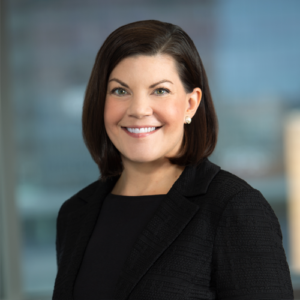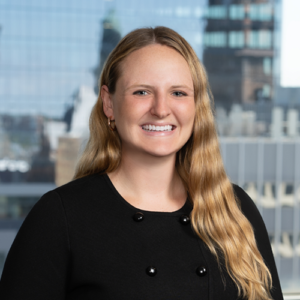Amazon Is Flexing
Given the number of boxes we see on porches these days, it’s fair to say we are all familiar with the hallmarks of Amazon’s core business – low price, fast delivery, wide selection and convenience powered by technology. Could these same value propositions translate into a radically reformed primary care delivery model? The potential is certainly there and Amazon appears willing to flex its muscles to accelerate its move into health care.
Last month, Amazon announced its intent to acquire One Medical, a publicly traded health care company, for $3.9 billion, representing a 77% premium on the stock’s value prior to the announcement. The all-cash deal would be the third largest acquisition in Amazon’s history, trailing only its acquisition of Whole Foods and MGM Studios.
Amazon now appears to be among the bidders for a large home health firm, placing Amazon in competition with other industry giants.
By any measure, these are major moves by Amazon into health care and we are taking notice.
About One Medical
One Medical is a membership-based primary care service that offers its members 24/7 access to virtual care with strategically located physician offices across the country to supplement its technology-driven platform. It has done particularly well in cultivating relationships with large employers, such as Google and Airbnb, which offer One Medical memberships to their employees. One Medical has also succeeded in developing a collaboration model with hospitals and health systems nationwide. Currently, One Medical owns and operates 188 fully staffed clinics in more than 20 major metros including Atlanta, Austin, Dallas-Ft. Worth, Los Angeles, New York, Phoenix, Raleigh-Durham and Seattle. One Medical boasts of its ability to provide same-day or next-day appointments, with comprehensive and convenient primary care services including on-site lab services and longer appointment times when desired by patients.
One Medical has designed an infrastructure to deliver affordable, fast, comprehensive and convenient primary care services powered by technology. Sound familiar?
The apparent business model synergies between Amazon and One Medical are patently compelling, but why is Amazon paying the premium to acquire this particular platform and perhaps others?
The Amazon-One Medical Marriage
The acquisition of One Medical is not Amazon’s first entry into health care. In 2019, Amazon launched its Amazon Care pilot program for employees in the Seattle area. Amazon Care offers virtual care visits, telehealth consultations and in-home visits for services such as blood draws and chronic care management. Amazon Care subsequently attempted a national expansion but with relatively anemic results.
It seems Amazon quickly learned that scaling in-person primary care services in an already tight health care labor market would prove difficult. Amazon Care’s model relies largely on virtual services, combined with providers dispatched to a patient’s home for any needed in-person services such as tests or physical exams. A model high on convenience for patients (like Amazon’s core business) but perhaps too low on recruitment and retention for caregivers.
Last week, on the heels of the One Medical announcement, Amazon announced it would be shutting down Amazon Care at the end of this year. In an internal memo regarding the decision, Amazon Health Services lead Neil Lindsay noted that Amazon Care “is not a complete enough offering for the large enterprise customers we have been targeting and wasn’t going to work long-term.” But, make no mistake, Amazon’s closure of Amazon Care is not a retreat – it’s part of what appears to be an aggressive, strategic, accelerated campaign to advance on health care.
While Amazon was having difficulties scaling its Amazon Care platform, One Medical was encountering its own challenges. Prior to the acquisition announcement, despite having built an impressive national network of physical offices and provider partners, One Medical was struggling to scale. The company had consistently reported net losses since the company went public in 2020. Analysts have commented that, if not for the Amazon deal, One Medical would likely have needed another capital raise within the next year.
The deal synergies are there. One Medical has a health care infrastructure including caregivers, a framework for scaling primary care, large enterprise customers and, notably, real estate in the form of 188 open and fully staffed offices around the country. Amazon has its own enterprise client base and the financial resources to scale.
Is the Future of Primary Care Here?
Money may not buy happiness, but it can buy companies. The Amazon-One Medical deal has the potential to springboard Amazon’s apparent mission to offer comprehensive, technology-centered health care services that combine primary care, pharmacy, telehealth and diagnostics all in one fast, affordable and convenient package for large enterprise customers. Combined with Amazon’s pursuit of other large health care companies, we see the beginnings of a potentially significant industry disruption.
One Medical Real Estate Assets
In a future installment of this multi-part series, we will drill down on the One Medical real estate portfolio, consisting of the 188 locations currently staffed and operated by One Medical.
Practical Takeaways
- Amazon appears poised to accelerate its move into health care, with an apparent focus on primary care services marketed to large enterprise clients.
- Do not underestimate the importance of real estate. Amazon’s closure of Amazon Care, combined with its acquisition of the One Medical infrastructure with 188 physical offices, is indicative of the importance of physical locations for a scalable primary care service platform.
- One to watch: will Amazon’s appetite for health care acquisitions continue? We may soon find out.
If you have additional questions or would like more information on this topic, please contact:
- Danielle Bergner at dbergner@wp.hallrender.com or (414) 721-0913;
- Andrew Dick at adick@wp.hallrender.com or (317) 977-1491;
- Chad Sukurs at csukurs@wp.hallrender.comor (317) 977-1452;
- Sadie Zurfluh at szurfluh@wp.hallrender.com or (414) 721-0472; or
- Your primary Hall Render contact.
Hall Render blog posts and articles are intended for informational purposes only. For ethical reasons, Hall Render attorneys cannot—outside of an attorney-client relationship—answer specific questions that would be legal advice.




